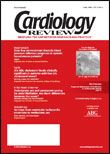ABC joins PEACE of Heart coalition with a goal of decreasing cardiovascular risk in African Americans
The Association of Black Cardiologists has joined a unique coalition of multiple national organizations and associations to provide screening and facilitate intense personalized health care in underserved communities in an effort to decrease cardiovascular risk in African Americans. Six cities have been initially targeted for this comprehensive outreach initiative, including Chicago, Atlanta, New Orleans, New York, Miami, and Washington, DC. Together, the organizations form the PEACE of Heart coalition: Partnership, Evaluation, Action, Community, and Education. Other members of the coalition include LabCorp, National Association of Community Health Centers, National Medical Association, National Minority Quality Forum, RainbowPUSH Coalition, and the UnitedHealth Group.
A combination of church- and community-based education, media outreach, and community health center screenings and case management will be used to enhance awareness, identification, and follow-up as key methods of decreasing cardiovascular risk factors. The final means of decreasing cardiovascular disparities, especially those related to racial and ethnic minorities, will include support of comprehensive lifestyle changes, wider application of evidence-based medicine, and perhaps universal electronic charts along with health insurance.
The importance of this initiative is based on the fact that heart disease affects approximately 1 in 3 adults (71.5 million), and is the leading cause of death in the United States. Moreover, cardiovascular disease is not only a painfully omnipresent condition, but a costly one, accounting for more than $448 billion in annual health care costs. The Centers for Disease Control and Prevention notes that 64% of all people report having 1 or more cardiac risk factors, and the prevalence of cardiac risk factors is anticipated to increase as the US population ages and there are concomitant increases in obesity and diabetes. The problem is especially pronounced in inner city communities, with recent data showing that less than 20% of insured 40-year-olds living in Chicago have received basic cholesterol screening. Furthermore, of these screened patients, only 45% are achieving optimal low-density lipoprotein (LDL) cholesterol levels.
Appropriate guidelines, risk factors, and treatment protocols for cardiovascular disease have been promulgated by the American Heart Association, among others, at www.heart.org. Also, information regarding high cholesterol will be available to the public and practitioners, as provided by the National Heart, Lung, and Blood Institute comprehensive summary at
.
www.nhlbi.nih.gov/guidelines/~
The acronym PEACE was developed to represent the coming together of the community and health care providers, a major health insurer, and a laboratory testing corporation. The first screening was completed at the Mile Square Community Health Center and Komed Holman Community Health Center in Chicago on July 2, 2008. Multiple participants were examined, which included a review of the patient's history, including smoking status; blood pressure screenings; venipuncture for accurate assessment of high-density lipoprotein cholesterol, LDL cholesterol, triglycerides, and blood glucose, both fasting and nonfasting levels; and calculation of body mass index. Physicians, nurses, and other health professionals will follow up with patients within 90 days to ensure participants have a "medical home." The medical home concept entails locating a primary care provider or clinic to ensure coordination and sustainability of cardiac risk reduction.
The purpose of PEACE of Heart is to make a serious attempt to decrease cardiovascular disparities by reaching underserved communities. Coordination with community health centers was done prospectively to develop a sustained health program to meet the goals of risk-factor control by providing participants with a medical home at a community health center. The aim is to have patients not only follow-up on risks that are identified, but to offer long-term assessment of health-related needs and prevention. One of the main reasons for disparities has been the lack of appropriate cardiovascular risk reduction, including lifestyle changes. Several studies have demonstrated that African Americans and other racial minorities have less identifiable primary sources of care and the use of emergency departments for episodic care cannot replace regular, sustained intervention by a physician and other providers.
For more information on the PEACE of Heart program, contact Jane Berg, UnitedHealth Group, via e-mail at
or via phone at 952-945-7508.
